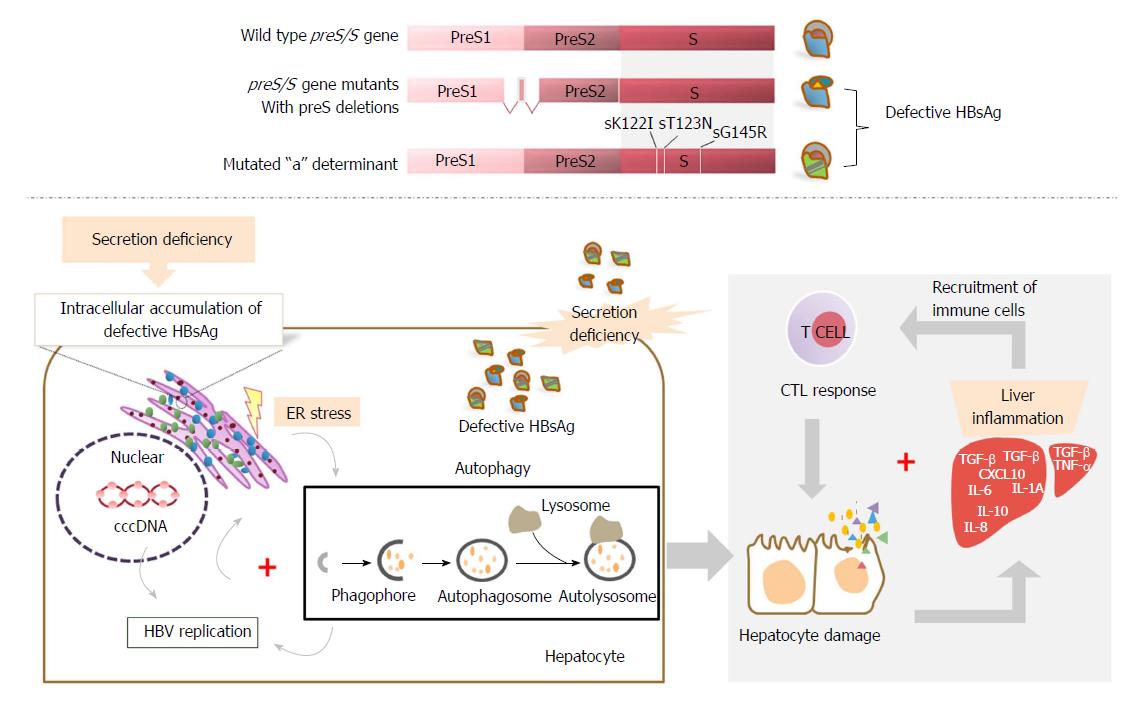Copyright
©The Author(s) 2018.
World J Gastroenterol. Aug 21, 2018; 24(31): 3488-3499
Published online Aug 21, 2018. doi: 10.3748/wjg.v24.i31.3488
Published online Aug 21, 2018. doi: 10.3748/wjg.v24.i31.3488
Figure 2 The proposed pathogenic role of mutated secretion-defective hepatitis B surface antigen in fulminant hepatitis.
Defective surface antigens, such as preS deletions and mutations within the “a” determinant, may lead to secretion deficiency of HBsAg. Defective HBsAg can promote covalently closed circular DNA (cccDNA) synthesis and amplification, thus facilitating HBV replication. The intracellular accumulation of defective HBsAg can cause endoplasmic reticulum (ER) stress, subsequently trigger autophagy, and may further enhance HBV replication. The enhanced HBV replication, in turn, leads to accumulation of more defective HBsAg, possibly resulting in a positive feedback with unfavorable outcomes and hepatocyte damages. Inflammation may occur in the liver by recruiting immune cells. Cytotoxic T lymphocyte (CTL) response may be abnormally activated and damage infected hepatocytes, contributing to the progression of fulminant hepatitis. HBsAg: Hepatitis B surface antigen.
- Citation: Wu CC, Chen YS, Cao L, Chen XW, Lu MJ. Hepatitis B virus infection: Defective surface antigen expression and pathogenesis. World J Gastroenterol 2018; 24(31): 3488-3499
- URL: https://www.wjgnet.com/1007-9327/full/v24/i31/3488.htm
- DOI: https://dx.doi.org/10.3748/wjg.v24.i31.3488









